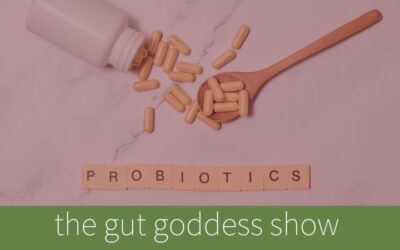 Last week I shared with you a bit of background knowledge about sugar. Its stained history and some of what current experts think about it, so if you missed it just click here so you get all the background information you need.
Last week I shared with you a bit of background knowledge about sugar. Its stained history and some of what current experts think about it, so if you missed it just click here so you get all the background information you need.
This week I am going to look a bit more at the science behind it and the impact it has on our bodies.
As you will have picked up on I believe sugar is a harmful substance and the cause for many of the health epidemic ravaging our world, so my research does come with this bias.
What is it?
I will let the experts do the talking (Source):
..Dr. David Reuben, author of Everything You Always Wanted to Know About Nutrition says, “.white refined sugar-is not a food. It is a pure chemical extracted from plant sources, purer in fact than cocaine, which it resembles in many ways. Its true name is sucrose and its chemical formula is C12H22O11. It has 12 carbon atoms, 22 hydrogen atoms, 11 oxygen atoms, and absolutely nothing else to offer.” …The chemical formula for cocaine is C17H21NO4. Sugar’s formula again is C12H22O11. For all practical purposes, the difference is that sugar is missing the “N”, or nitrogen atom.
A tad on the dramatic side? Or food for thought?
Different varieties
There are lots of types of sugar out there but the thing to consider is what they do/become when they are in your body.
We have all heard of glucose. Glucose is what every cell needs in order to function and have energy- fact! But you will have also heard of fructose, dextrose, maltose etc etc so again here is an easy breakdown (source)
- Dextrose, fructose, and glucose are all monosaccharides, known as simple sugars. The primary difference between them is how your body metabolizes them. Glucose and dextrose are essentially the same sugar. However, food manufacturers usually use the term “dextrose” in their ingredient list.
- The simple sugars can combine to form more complex sugars, like the disaccharide sucrose (table sugar), which is half glucose and half fructose.
- High fructose corn syrup (HFCS) is 55 percent fructose and 45 percent glucose. (this is not used in UK based products – praise the lord!)
- Ethanol (drinking alcohol) is not a sugar, although beer and wine contain residual sugars and starches, in addition to alcohol.
- Sugar alcohols like xylitol, glycerol, sorbitol, maltitol, mannitol, and erythritol are neither sugars nor alcohols but are becoming increasingly popular as sweeteners. They are incompletely absorbed from your small intestine, for the most part, so they provide fewer calories than sugar but often cause problems with bloating, diarrhea, and flatulence.
- Sucralose (Splenda) is NOT a sugar, despite its sugar-like name and deceptive marketing slogan, “made from sugar.” It’s a chlorinated artificial sweetener in line with aspartame and saccharin, with detrimental health effects to match.
- Agave syrup, falsely advertised as “natural,” is typically HIGHLY processed and is usually 80 percent fructose. The end product does not even remotely resemble the original agave plant.
- Honey is about 53 percent fructose2, but is completely natural in its raw form and has many health benefits when used in moderation, including as many antioxidants as spinach.
So for all you agave nectar fans out there – please stop as you may as well be pouring high fructose corn syrup into your coffee!
There has also been loads of research into the impact that the monosaccharide fructose has on the body. Or should I say the disastrous effect it has on the body. The video lecture below is a long and detailed account of this by an expert, which if you are a food geek like me you may find interesting. But to summaries, we eat far more fructose now than we have ever before. Fructose is naturally present in fruits and other natural foods but has dramatically increased over the years due to the processed food industry. We are now suddenly getting large doses of fructose in our diets and the thing about fructose is that the body metabolising it differently to glucose. But this is a large subject within itself and I will go into more detail on Fructose at a later date (just to keep you hanging!)
Why is Sugar Bad?
Well there are many reasons but here are a few:
- It is addictive.
You are probably thinking, I am not addicted to sugar, it’s no big deal, I can easily have a day without it… Well I suggest you do. Have a whole day where you don’t add or eat any packaged food that has added sugar in. Then tell me if it is not addictive.
I could go into the psychological impacts of addiction but I am going to keep it simple. You are powerful, why should you be controlled by a substance like sugar? - It is not a food. It has a more similar structure to opiates. See quote above by Dr. David Reuben. It has no nutritional, mineral or vitamin benefit.
- It sends you on blood sugar roller coaster. Get grumpy when you are hungry. Are energised briefly and then crash into an energy slump despair? This my friend is the blood sugar roller coaster.
You consume sugar so you release insulin to manage it and convert it into glycogen if present in excess, by if you always have glucose in your blood from sugar (or carbohydrate/grains) then you will always have an insulin release in your body. Was the pancreas designed to always be releasing insulin – NO! So overtime it can:
A. stop working all together and you need additional insulin to be injected after each meal (Diabetes) OR
B. Your cells become desensitised to insulin and insulin resistance occurs. Both outcomes are bad and lead to terrible health outcomes. - Sugar is an Anti Nutrient. As we read above refined sugar is not really a food and has not mineral, vitamin, enzyme, fat or protein benefits . So is it neutral food, effects on our body in no real way? Not according to Dr Natasha McBride Campbell of the GAPS diet:
‘ …one molecule of sugar the body requires around 56 molecules of magnesium. Consumption of sugar is a major reason for widespread magnesium deficiency in our modern society, leading to high blood pressure, neurological, immune and many other problems.’ - It can give you High Cholesterol. Yes, it not the fat people it’s the sugar. This study looked at the impact sugar sweetened drinks on people visceral fat (fat around organs) and insulin resistance and increase the rate of fatty acid produces (DNL) :
These data suggest that dietary fructose specifically increases DNL, promotes dyslipidemia (cholesterol), decreases insulin sensitivity, and increases visceral adiposity in overweight/obese adults source. It is eating a diet that is filled with carbohydrate and sugars that contributes to high cholesterol and heart disease. Read here for my article on fats and why its proven that they don’t give your heart problems.
Plus many other problems that I have read about but don’t want to bore you with!
But, sugar is often a naturally occurring substance in our food? Fruit is filled with it. Carbohydrate gets converted into glucose once digested and any excess get stored by the body as glycogen .
So what is the problem with Sugar?
The problem is the packaged sugar pumped pizza’s, drinks, cereal bars, smoothies, low-fat yoghurt and condiments. Sugar is in EVERYTHING and yes some natural foods do contain sugar, but the amount of sugar we consume is ridiculous. I don’t believe we were made to consume the levels of sugar that we do and that when we do choose to enjoy something sweet it is to be in it natural form, not some tin of cake (although those Heinz tins of sponges are tasty!)
We are a nation of sugar addicts, working hard, stressed out and in need of caffeine and sugar boosts to keep us going. We also eat loads more packaged foods than ever, with even the ‘healthy’ ones like wholemeal bread, ketchup, and beans being laden with refined processed sugar. (Rant nearly over…)
Our average consumption of sugar has radically increased over the last 100 years and are we healthier for it? With the constant increase of obesity, diabetes, heart disease and cancer I would say not and I think it has a lot to do with this not so sweet stuff.
No please remember I am no doctor or scientist, I am passionate about you being well and healthy. Use you own mind, do your own research and listen to you body, but maybe think about saying goodbye to sugar??!!
Let me know what you think and any questions you have and I look forward to next week where we will discuss a bit more about fructose and what life looks like with less sugar in it!





0 Comments